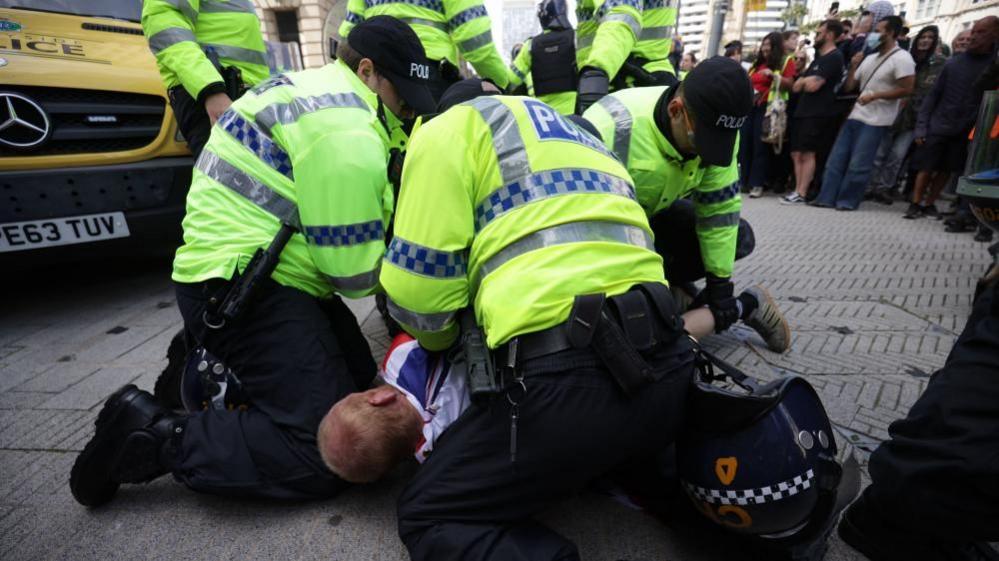Total charged over Manchester disorder hits 28
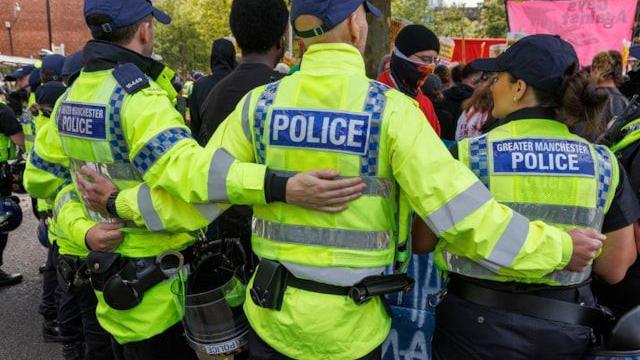
Rival protesters were kept apart in the region as part of a major police operation
- Published
A total of twenty eight people have now been arrested in connection with violent disorder.
Chief Constable of Greater Manchester Police Stephen Watson said the number was "likely to grow" as officers worked to track down other lawbreakers.
Two men and two teenagers have been charged with weapons, violent disorder and criminal damage offences after a protest in Bolton.
And four people more people were arrested after a fight between a man and a larger group during demonstrations at Piccadilly Gardens.
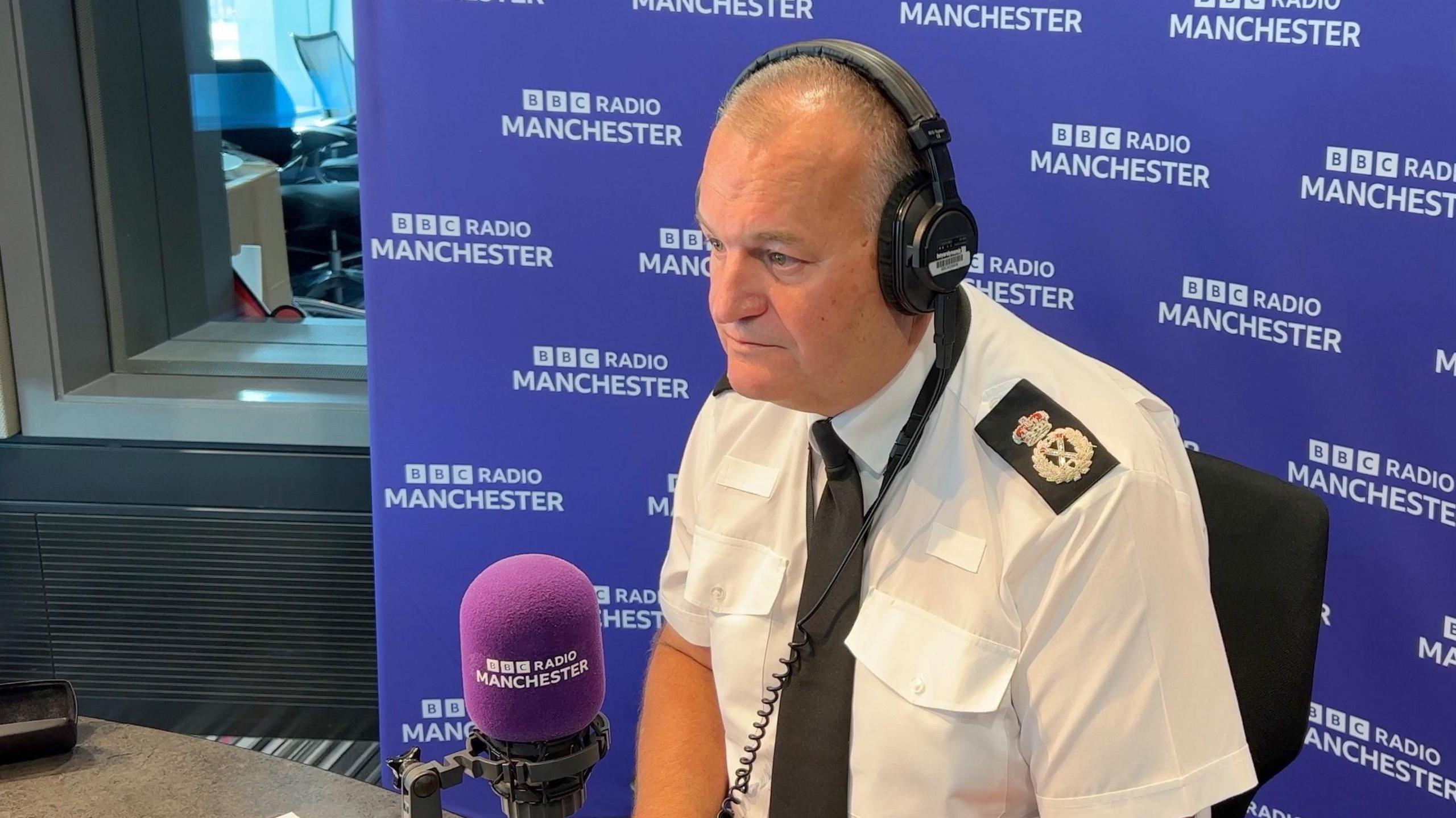
Stephen Watson said officers policed protests based on "what we're confronted with"
Mounted police and officers in riot gear were seen keeping rival protesters and other groups apart at protests across the region at the weekend.
The force had "kept a tight lid" on disorder to the point where "a de facto riot has not taken place", Mr Watson said.
He said "determined and well-trained" officers had worked to distinguish those protesting lawfully and those set out to "destroy, harm, threaten, and loot shops".
There were fewer injured officers than at other police forces as officers had worked to limit "the spill-over type stuff that tends to result in injuries", he added.
A post-incident investigation team has been set up to help find other offenders, with police using a bank of video footage to identify those involved, the chief constable added.
He said social media had driven misinformation, but said it was also a "fantastic source of evidence in bringing people to justice".
Policing protests
In Bolton, a group of Asian men chanting an shouting "Allahu Akbar", an Arabic phrase meaning God is greatest, were kept apart from demonstrators in a major police operation.
Chief Constable Watson told BBC Radio Manchester claims of two-tier policing, where different groups are treated differently, "run contrary to everything" the police stood for.
"Piccadilly Gardens was inspired by far-right" he said.
"On Sunday it was a different dynamic. In Bolton, it was local Asian youths, masked up carrying weapons and behaving in a very threatening violent way.
"The policing style for both was identical, as these were people turning up intent on disorder, as opposed to legitimate protest."
"That is the opposite of two-tier policing."
Listen to the best of BBC Radio Manchester on Sounds and follow BBC Manchester on Facebook, external, X, external, and Instagram, external. You can also send story ideas to northwest.newsonline@bbc.co.uk, external
Related topics
- Published5 August 2024
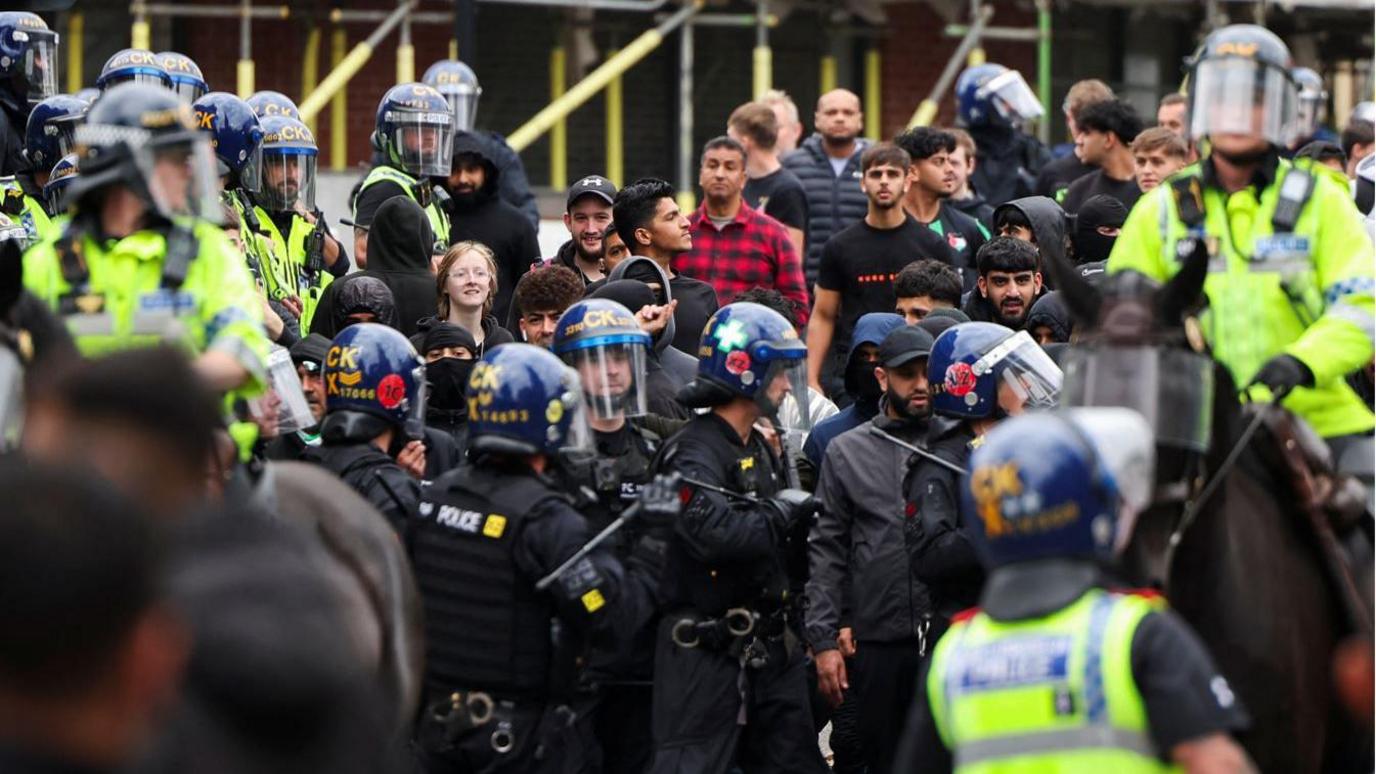
- Published5 August 2024
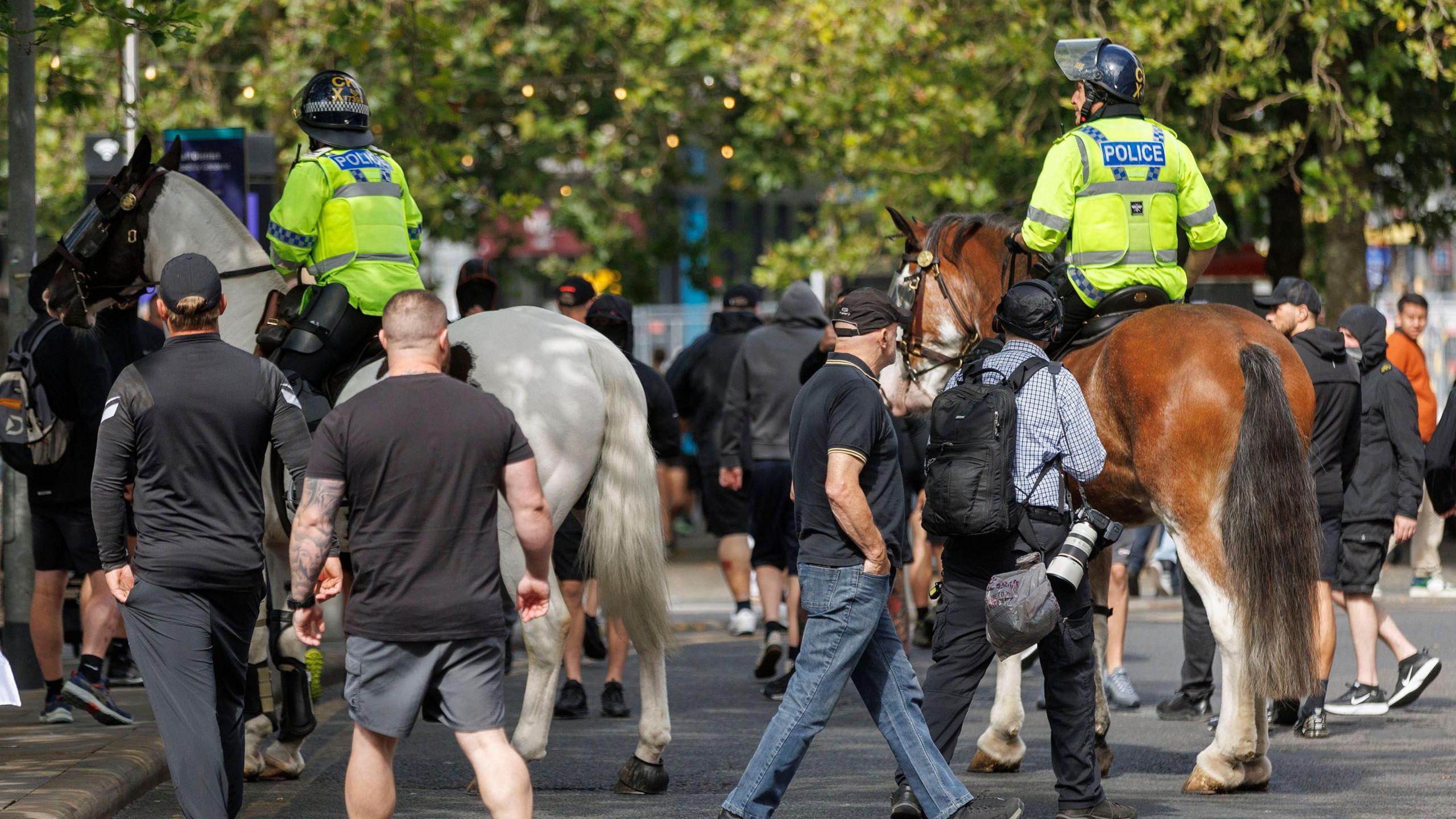
- Published4 August 2024
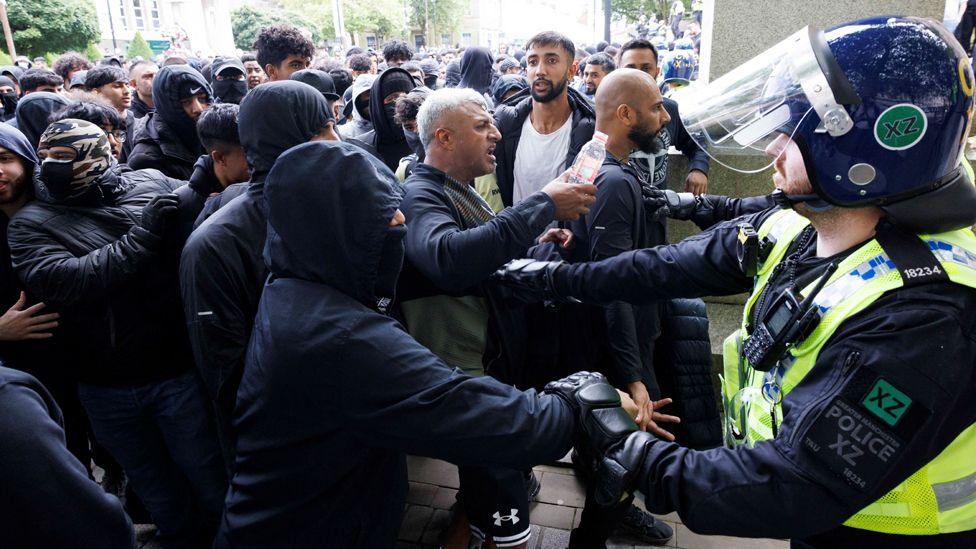
- Published4 August 2024
